The Gates Foundation has spent about $200 million since 2010—in addition to other sources who kicked in about $400 million—on an education initiative designed to increase student performance:
The school sites agreed to design new teacher-evaluation systems that incorporated classroom-observation rubrics and a measure of growth in student achievement. They also agreed to offer individualized professional development based on teachers’ evaluation results, and to revamp recruitment, hiring, and placement. Schools also implemented new career pathways for effective teachers and awarded teachers with bonuses for good performance.
They helped out all teachers; fired bad teachers; promoted good teachers; and paid bonuses to effective teachers. So how did it work out? They contracted with RAND to perform an evaluation, and here are the results for the three public school systems:
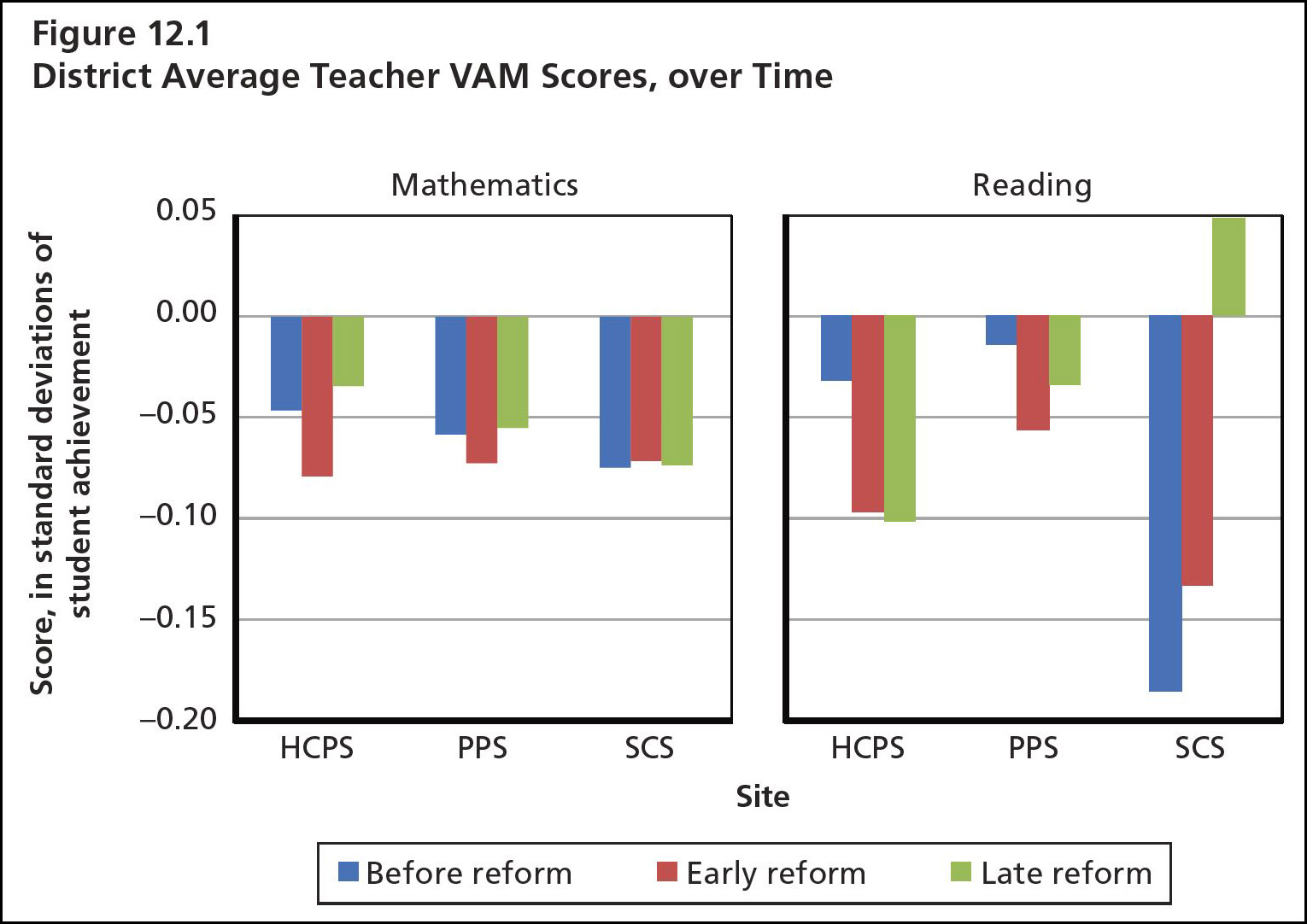
The difference between the blue and green bars is basically zero or negative everywhere. The one exception is a sudden and massive improvement in reading in the Shelby County School District during the last few years of the program. This is sort of inexplicable, though it might have something to do with its merger with the Memphis School District during this period.
In any case, let’s take a closer look at student performance in all three public school districts plus the CMO (charter) districts:
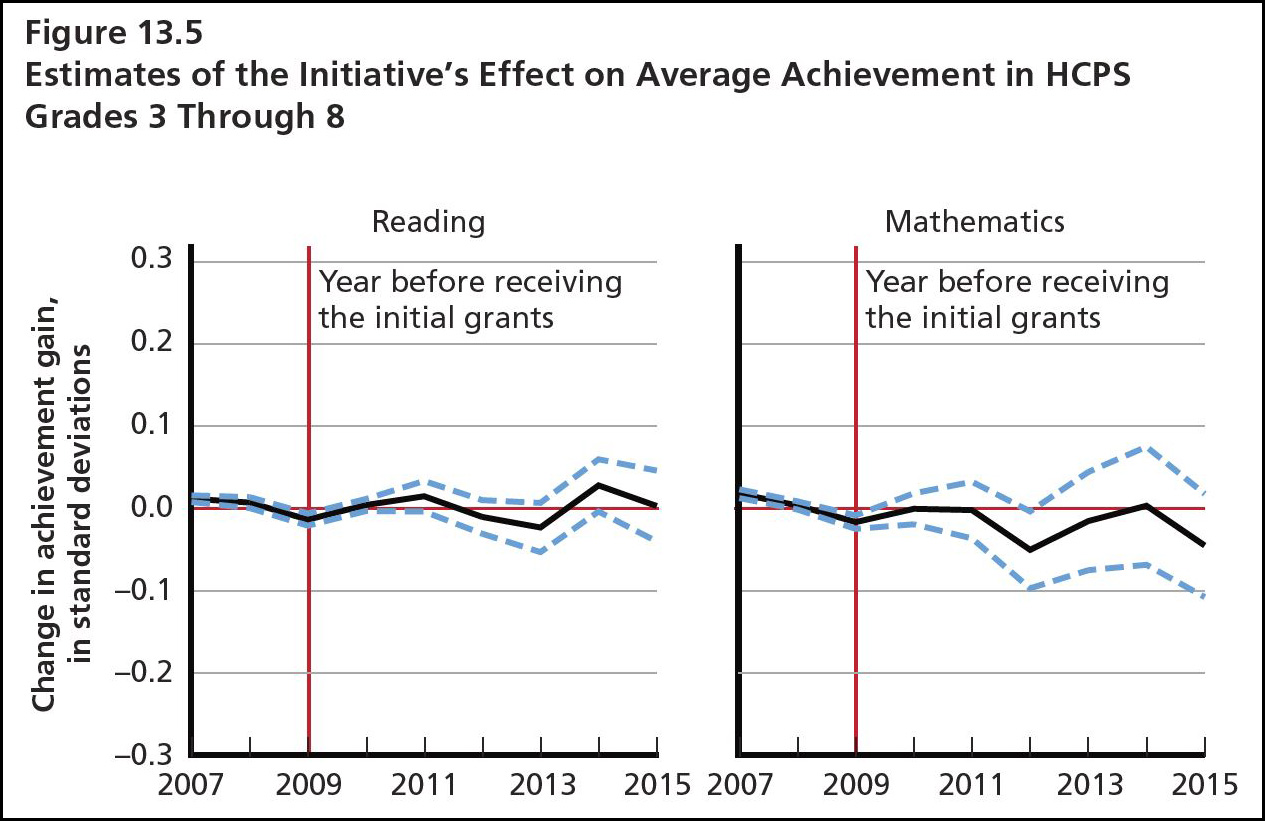
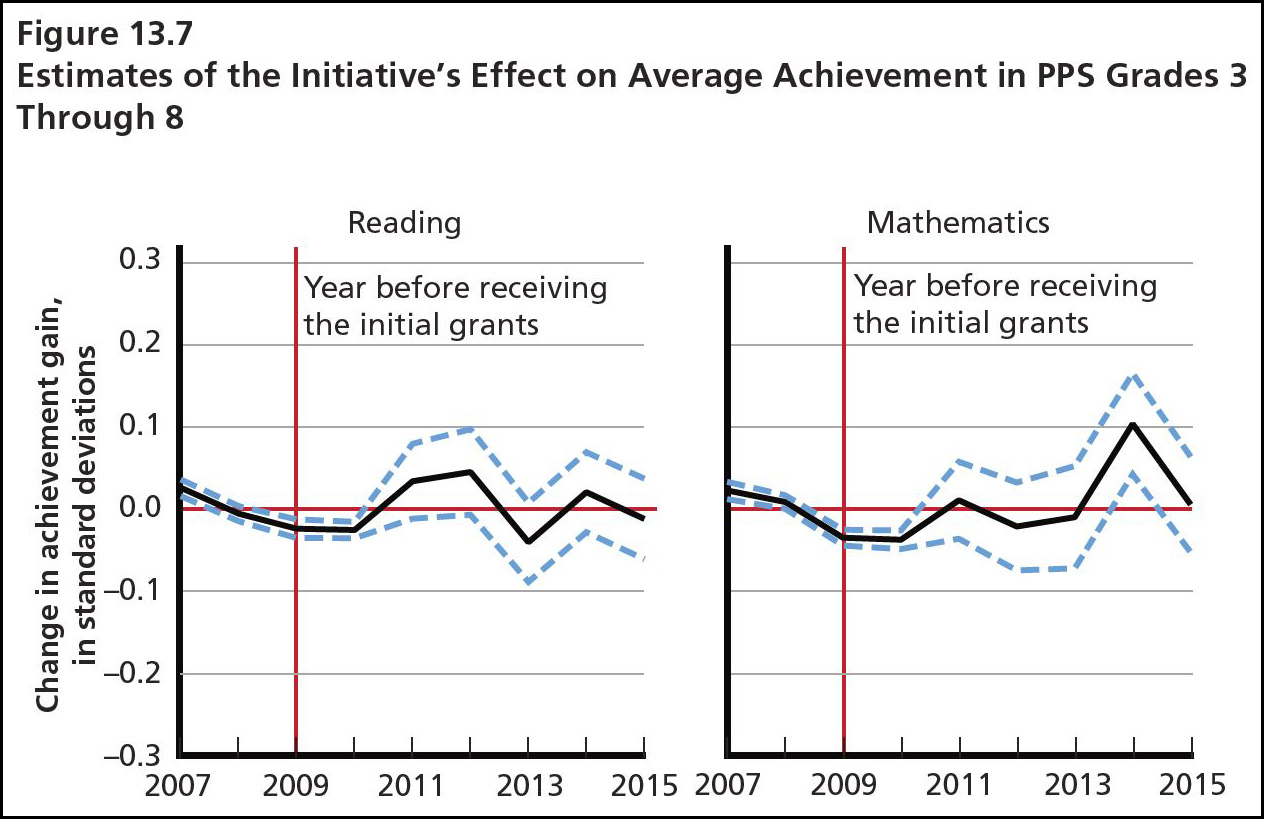
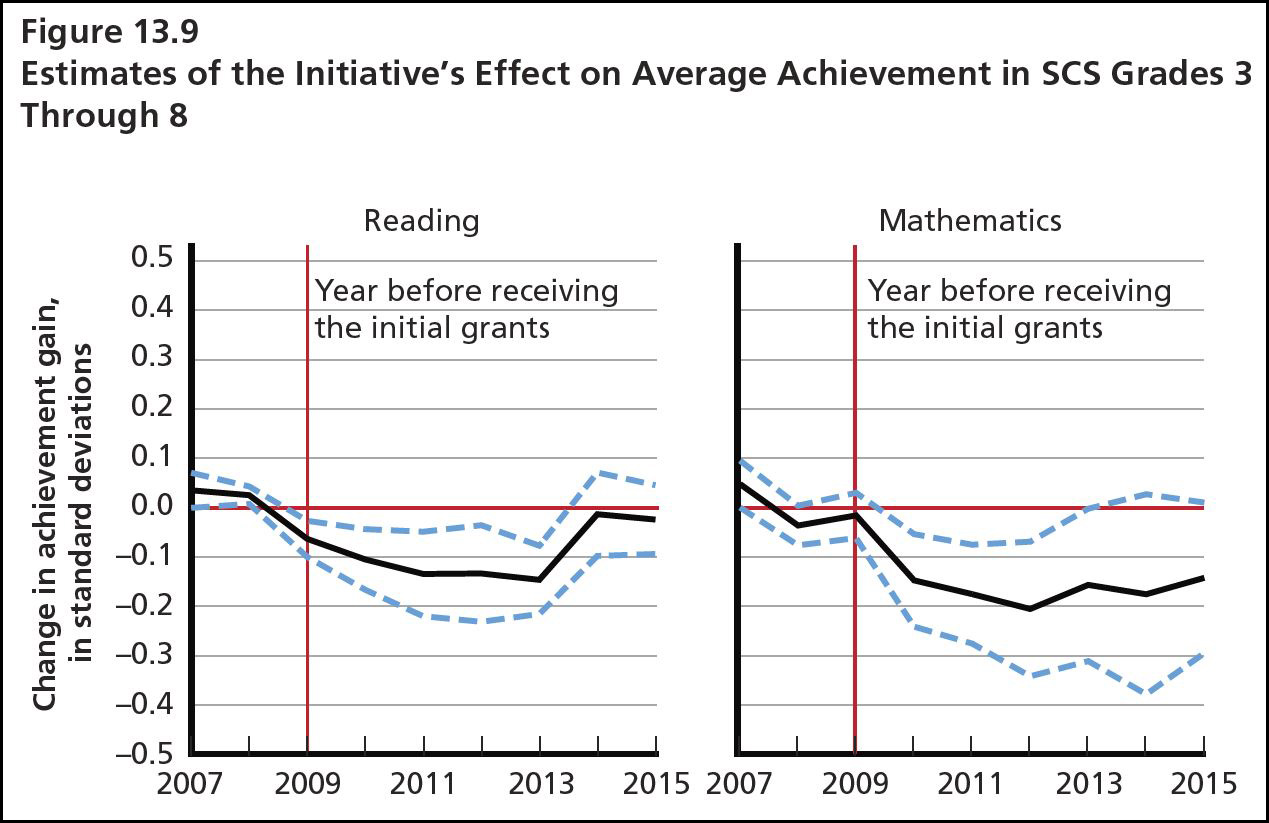
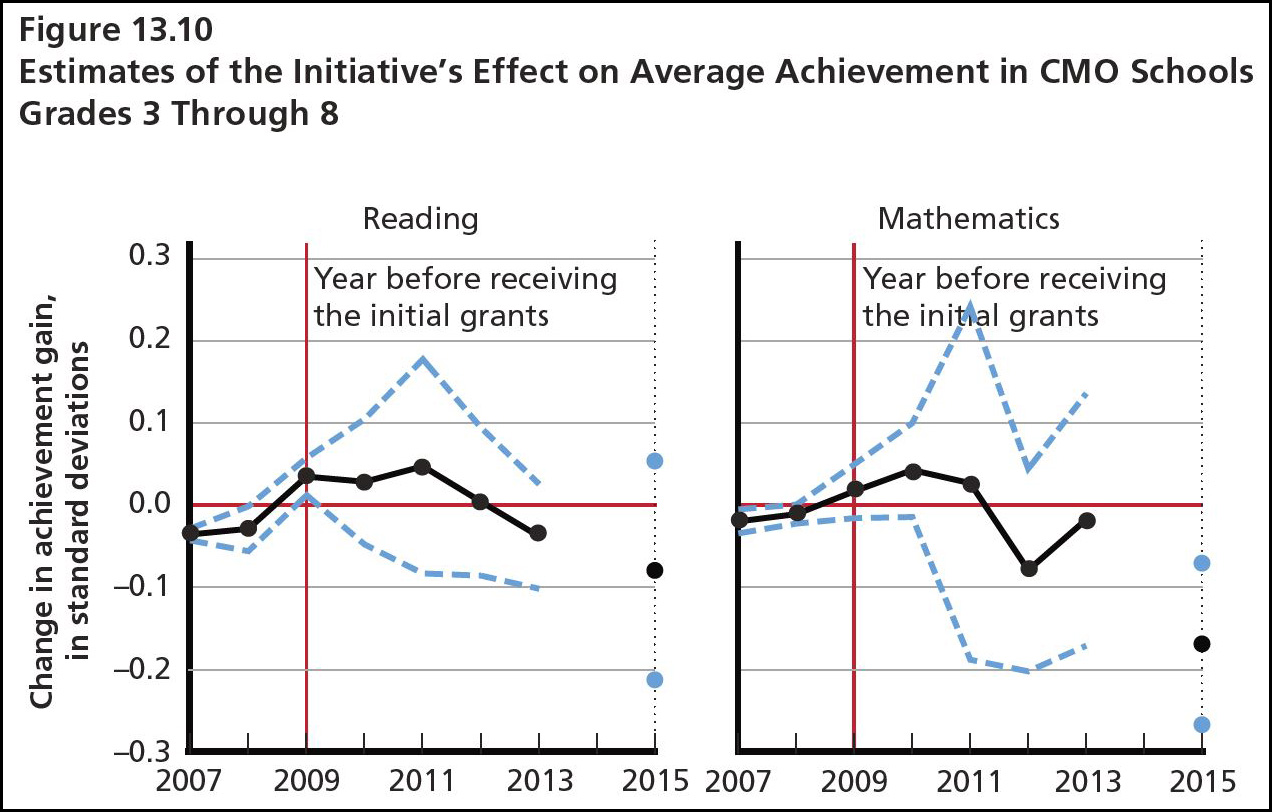
Long story short, there was no improvement at all in student achievement, despite the fact that funding was far greater than it would be in any real-life reform of this nature. There may have been some other successes in this program, but if the ultimate goal is better students, it was a complete failure. Whatever the answer is, rewarding good teachers and firing bad ones sure doesn’t seem to be it.
POSTSCRIPT: The program may have been a failure at improving student outcomes, but it’s worth pointing out that this doesn’t make it a failure as an experiment. The whole point of an experiment is that you don’t know the answer beforehand, and this one helps us understand what doesn’t work. That’s valuable, since it lets us move on to other things.
Also, kudos to the Gates Foundation for running an honest test. They designed it well; they funded it properly; and when it was over they hired a third party to provide an honest assessment of what happened. That’s the way it should be done.













